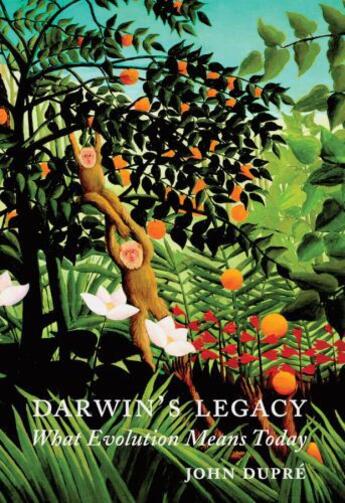Des idées de lecture pour ce début d'année !
Passionné(e) de lecture ? Inscrivez-vous
gratuitement ou connectez-vous pour rejoindre la
communauté et bénéficier de toutes les fonctionnalités du site !

This book shows that although there are particular aspects of the theory of evolution which remain controversial, and issues still to be settled, there can no longer be any doubt that the basis of the theory is true. It examines the consequences for our view of human nature, religion, and non-human animals. John Dupr--eacute--; also investigates the appropriation of evolutionary biology by psychologists, and argues that their claims are largely spurious: despite its status as one of the most important scientific ideas of all time, the theory of evolution has very little to tell us about the details of human nature and human behaviour, such as language, culture, and sexuality. - ;The theory of evolution has fundamentally changed our view of the universe and our place in it. By providing a radically new vision of the origin of human beings, it challenged long-held assumptions about our own significance, and undermined the major arguments for the existence of God. But almost 150 years after the publication of Darwin's Origin of Species these implications are still not properly understood, and in some sectors of society they are actively resisted.
The last decade has also seen the rise of a new field, evolutionary psychology, which takes the theory of evolution to provide insight into aspects of human culture and behaviour as diverse as language, morality, sexuality, and art.
This book shows that although there are particular aspects of the theory of evolution which remain controversial, and issues still to be settled, there can no longer be any doubt that the basis of the theory is true. It examines the consequences for our view of human nature, religion, and non-human animals. John Dupr--eacute--; then investigates the appropriation of evolutionary biology by psychologists, and argues that their claims are largely spurious: despite its status as one of the most important scientific ideas of all time, the theory of evolution has very little to tell us about the details of human nature and human behaviour. -
Il n'y a pas encore de discussion sur ce livre
Soyez le premier à en lancer une !

Des idées de lecture pour ce début d'année !

Si certaines sont impressionnantes et effrayantes, d'autres sont drôles et rassurantes !

A gagner : la BD jeunesse adaptée du classique de Mary Shelley !

Caraïbes, 1492. "Ce sont ceux qui ont posé le pied sur ces terres qui ont amené la barbarie, la torture, la cruauté, la destruction des lieux, la mort..."